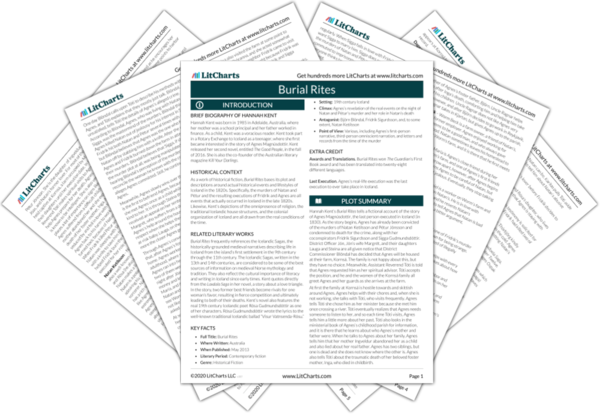Rósa is ’s former lover, ’s mother, and a well-respected poet throughout Iceland. Rósa is a married woman, and Natan lived at her farm with Rósa and her husband for a time, fathering Thóranna in the process. When Natan left, Rósa was upset, and she became intensely jealous of Natan’s later relationship with . Rósa is known for speaking in verse and for her moving poetry.
